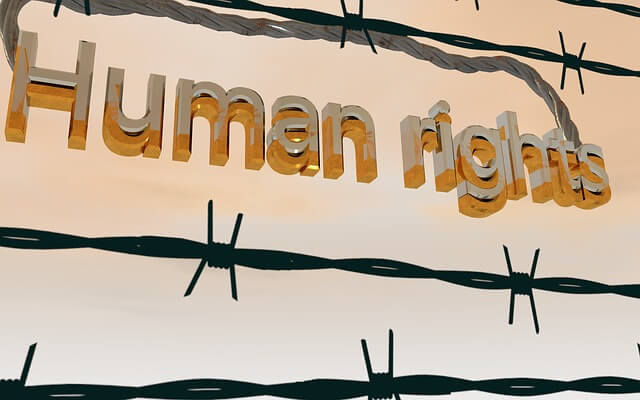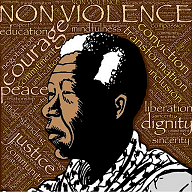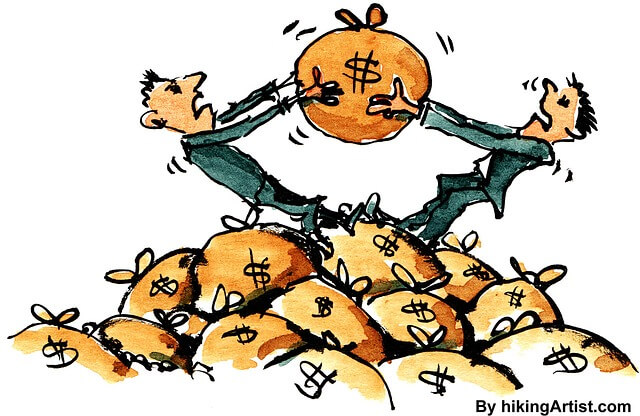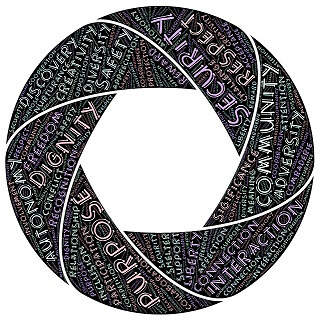Anti-Discrimination
المقررات الدراسية موسومة بـ "Anti-Discrimination"
Human Rights
Introduction
Human rights are rights we have simply because we exist as human beings - they are not granted by any state. These universal rights are inherent to us all, regardless of nationality, sex, national or ethnic origin, color, religion, language, or any other status. This means that we are all equally entitled to our human rights. This principle, as first emphasized in the UDHR - Universal Declaration of Human Rights (UDHR) - is repeated in many international human rights conventions, declarations, and resolutions.Human rights are the basic rights we all have simply because we are human. A right is a legal entitlement
to something. There are fundamental rights and freedoms that everyone in the UK is entitled to.
Identify what you think counts as a “right” from the list below:
· Money
· Education
· Employment
· Privacy
· Car
· Marriage
· Phone
· Vote
· House
· Life
· Freedom
Inequality
Learn about inequalities in society including poverty, health and age. This course is ideal for intermediate learners.
Introduction
Inequality can be found in most societies as it is the result of resources being shared out unequally among people. Resources are usually given out according to social characteristics such as age, gender and disability.These characteristics can come from:
· Ascribed characteristics which are assigned at birth, or an automatic development at some point and includes factors such as age, gender or place of birth
· Achieved characteristics which are earned or chosen and involves factors such as level of education and marital status.
Resources that are distributed can include the following:
· Income or wealth, where there is economic inequality
· Social power, meaning the right to be an authority figure or to have a say
· Natural goods, such as parks or green areas
· Public goods, which can include: education, housing, transport, credit (such as cards, store cards, loans or mortgages) and banking
You will learn
- What is inequality in society
- Inequality in economic status
- How economic inequality is measured
- The meaning of poverty
- inequality in health
- Inequality in age
Anti-Discrimination
Learn about anti-discrimination and how it can affect recruitment and training. This course is ideal for intermediate learners.
Introduction
Anti-discrimination is the prevention of unfair treatment because of age, sex, and religion, among other things. Another session covers unequal treatment which is called discrimination, and that is against the law.
It is important that anti-discrimination practices are followed so that this treatment can be avoided, especially within recruitment and employment.
There are several stages when recruiting or employing someone:
· Developing the job/placement description
· Advertising
· Application process
· Shortlisting
· Interviewing
All these stages need to be carefully considered when thinking about how to avoid discrimination.
You will learn
- What is anti-discrimination
- How anti-discrimination affects recruitment
- How anti-discrimination affects training
- How to deal with grievances
Public Services are in Place
Learn about why public services are important and what are the needs of a diverse society. This course is ideal for intermediate learners.
Introduction
The public services play a vital role in our lives. We need the public services to meet the needs of a diverse society.The concept of diversity encompasses acceptance and respect. It means understanding that each individual is unique, and recognizing our individual differences.
You will learn
- Why public services are important
- What makes people diverse
- A range of reasons why public services are in place
Equal Opportunities
Learn about the cost of implementing or not implementing equal opportunities measures. This course is ideal for intermediate learners.
Introduction
Creating and developing equal opportunities creates many benefits for society, public services and businesses. However, with the application of the Equality Act 2010 and so that equal opportunities can be achieved, it comes with a cost. Although this should far outweigh the cost involved with not adhering to the act.The cost for businesses: Possible costs of adhering to the Equality Act 2010 and equal opportunities for businesses employing a wide diversity of staff:
Costs to employers includes:
• Simplification of application process
• Learning and understanding of different cultures (clothing, special days, religious needs)
• Providing areas for rest or religious activities
• Food or methods of preparation (If canteen area is provided)
You will learn
- The cost of implementing equal opportunities
- The cost of not implementing equal opportunities
- Equal opportunity measures
Rights within the Criminal Justice System
Learn more about rights within the criminal justice system. This course is ideal for intermediate learners.
Introduction
As we look at how Public Services support the rights and responsibilities of citizens, it is important to understand a citizen’s rights in relation to the Public Services.We will now look at the rights of citizens within the criminal justice system.
Every citizen has basic rights, for example if you are arrested you are entitled to legal representation.
Here is some of the information relating to your rights when you’re arrested:· Getting free legal advice
· Telling someone where you are
· Having medical help if you’re feeling ill
· Being given a notice that tells you about your rights
· Access to an interpreter, if needed
· For your possessions to be kept locked away safely
You will learn
- Legal representation
- Legal aid
- A fair trial
Public Services and Equality
Learn about equality and how it affects people and public services. This course is ideal for intermediate learners.
Introduction
Equality is based on the understanding that everyone should be treated equally, so that they have the same opportunities as each other regardless of, for example, their age, sex, sexuality, disability or race.People treated unequally due to these differences are being discriminated against, which is illegal.
We are protected from discrimination through the implementation of the Equality Act 2010.
Equality Act 2010.
below some of the nine pieces of legislation were merged to create the Equality Act 2010.
EQUAL PAY ACT 1970: Stops any favourable or unfavourable treatment of pay, or any other conditions, within employment between men and women.
RACE RELATIONS ACT 1976: The protection against discrimination relating to a male or female’s race, colour, ethnic or national background in education and employment and during the process of buying goods or services.
EMPLOYMENT EQUALITY (RELIGION or BELIEF) REGULATIONS 2003: Used to protect people
from being discriminated against due to their religion or belief, or non-religion/belief
within employment.
EMPLOYMENT EQUALITY (SEXUAL ORIENTATION) REGULATIONS 2003: The protection against discrimination due to expected or known sexual orientation within employment, which also includes discrimination against religion, belief and age.
EMPLOYMENT EQUALITY (AGE) REGULATIONS 2006: The protection against discrimination on the grounds of age within employment. Employees may work after the national retirement age.
You will learn
- Equality
- What is equality
- How equality affects us and the public services
Public Services Affected by Finances and Social Inequality
Learn more about how public services are affected by finances and social inequity. This course is ideal for intermediate learners.
Introduction
The Public Services rely on funding from the Government to survive. The Government has to choose how much money it allocates to each service, based on the money they have. When the Government needs to save money, they can often make cuts to different Public Services.What effect can it have?
· Slower response times
· They may cut jobs
· Reduced hours
· Station closures
· Reduced training
· Removal of specialist equipment that is expensive to run
You will learn
- Government finance
- Fire service
- Police
- Social inequality
Promoting Good Citizenship
Learn more about the promotion of good citizenship in the public services sector. This course is ideal for intermediate learners.
Introduction
The Public Services view good citizenship as an important part of maintaining a good society.Therefore, Public Services want to maintain good citizenship by:
· Having a desire to improve society
· Protecting individuals
· Protecting the vulnerable
· Contributing to society by getting involved
You will learn
- How public services promote good citizenship
- How when working in public services you will promote good citizenship
Individual Rights Dignity & NHS
Learn more about dignity and rights when using public services. This course is ideal for intermediate learners.
Introduction
In life we need to use the Public Services many times for different reasons. It is important that when we need these services that they are high quality services.For example, if you were to call the Paramedics in an emergency and they did not turn up until the next day this could be very dangerous and would be an example of poor quality service.
Another example could be if you called the fire service and they did not turn up with the correct equipment with them, then lives could be in danger.
You will learn
- Public services users rights
- Your right to consent to treatment when using the NHS
- Why it is important to have your dignity maintained when using public services











